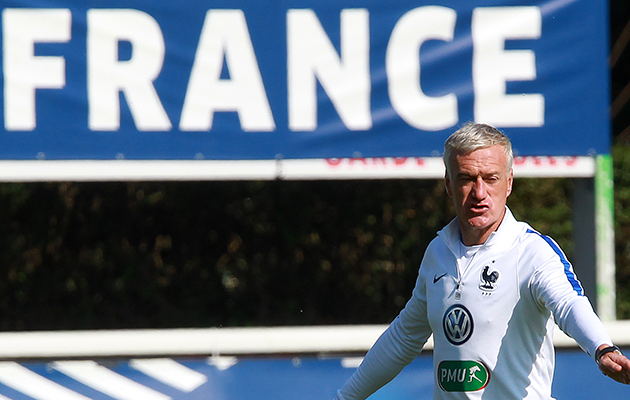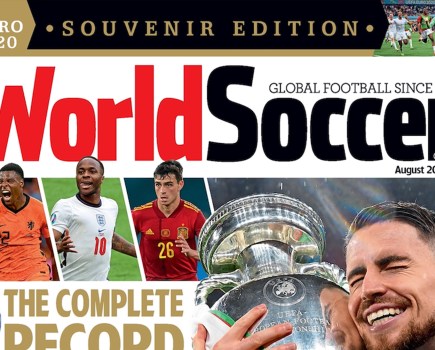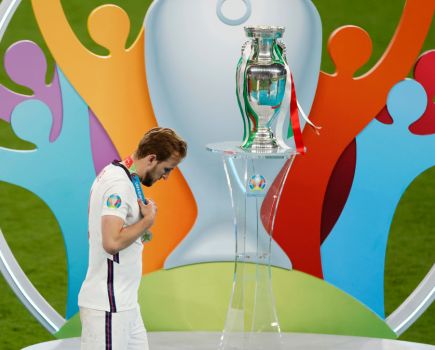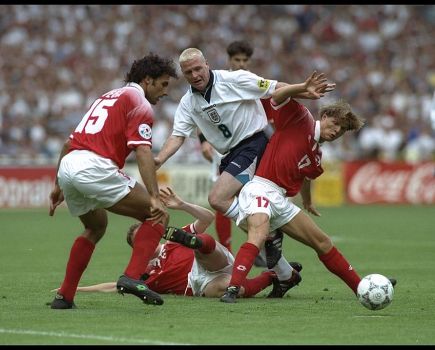No football manager at a major tournament teeters along a higher tightrope, and in a blustery wind, than the boss of the host nation. For Luiz Felipe Scolari at the last World Cup read Didier Deschamps at the 2016 European Championship.
The latter’s one advantage, which shone through his demeanour in the Stade de France ahead of the Opening Match against Romania, was that the 47-year-old coach of France has been here before. He was captain when Les Bleus won the World Cup in this same stadium in 1998; and he was captain again when they triumphed a few hundred miles to the east at the European finals in 2000.
Been there, done it, got the T-shirts. But the T-shirt this time is more a tighter fit. The coach prepares his squad, picks the tactics, decides on the players. But once the players cross the white line they are largely on their own and he can only watch his work stand or fall by their interpretation of his message.
For Deschamps that message, at least, was a positive one. This promises to be good news not only for France but for the tournament and for European federation UEFA which needs a month of entertaining football to relegate into the shadows the power-game agendas of some of its directors.
“We are not going to keep the ball to ourselves a lot,” said Deschamps, discussing his attitude to the trials ahead, not least a tightly-organised Romanian defence.
Title rivals
“Our strength lies in putting our foot down on the accelerator rather than wearing the opposition down over a period of time.”
Deschamps was referring, obliquely, to Spain who won the European title in 2008 and 2012 with their tika-taka football which, while generated more admiration than excitement. But Deschamps knows that Spain, as kings of Europe, along with Germany, as world champions, are the main dangers to French ambition.
A tournament expansion from 16 to 24 teams has brought uncertainty over the likely quality of the football and, as the French weather begins to improve, so the extra round in the knockout stage will dictate a role for fatigue amid what Deschamps readily defined as “fixture congestion.”
His priority, however, is that France will still be around to confront these later challenges. This means extending, into competition, the form which France have shown over two years of friendly matches.
Deschamps said: “We have played 20 matches since the World Cup in Brazil but they were just friendly games. Now we will experience a tournament match again. I think I have a competitive side with some very exciting attacking potential. But we know we also need to be able to defend well so throughout our training sessions we have focused on having an effective defensive block.”
The immediate Opening Match ambition is no secret.
Respect for Romania
Deschamps said: “The aim is to score the opening goal as early as possible. But we must not think that Romania are an ultra defensive side. They are also able to come out, press high up the pitch to provoke mistakes and when they have the ball they can use it very effectively.”
Reaching back to memories of his playing days Deschamps appreciated the stress of the occasion but viewed it in positive terms, saying: “You need butterflies in your stomach before going out for an important game because we haven’t done anything yet.
“When I picked these players I knew there was a great deal of quality. We’ve been able to score a lot of goals and cause problems for our opponents though not to the detriment of anything else. But if you want to go far in the competition you need great attacking potential.”
France would have even more attacking potential were Real Madrid centre-forward Karim Benzema available but he has been banished over the bizarre ‘sextape blackmail’ case. French federation president Noel Le Graet, who took that decision, is not the only man who needs the attackers present at the party to live up to the manager’s expectations.
Deschamps’s fellow Frenchman – with little enough to cheer of late after their concerns over security, floods and strikes – depend on it.






